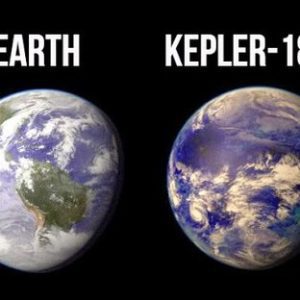I am Chinese, 44 years old this year. My childhood spanned the entire 1980s and 1990s. When it comes to maintaining cleanliness, this question brings back some memories of a “dirty and chaotic China.”
The first memory is a small detail. In any indoor place in China today, whether it’s a restaurant, hotel, or home, every room will have a plastic trash can. There will be a plastic bag lining the trash can to make it easy to remove the garbage. They usually look like this:

However, these things were not part of my childhood memories. In other words, decades ago in China, there were no such trash cans. So, how did people throw away garbage in rooms back then? My memory is that people either put the trash in a shared outdoor trash can or threw it on the ground inside the room. Once the trash on the ground accumulated enough, they would then throw it into the large outdoor trash can.
Moreover, there is an evolving version of this small detail: I remember when I just got married in 2005, the plastic bags used to line trash cans were the ones from the vegetable markets. People collected these plastic bags after buying vegetables and used them in their trash cans. No one would buy plastic bags specifically for trash cans.
But today, various types and sizes of trash bags are essential in every Chinese household. The most popular ones are the trash bags that, when full, have two drawstrings on the sides that can be pulled to close the bag. This way, you can lift the heavy trash without worrying about it spilling:

My second memory is about littering. I remember when I was in elementary school, around 1992. My mother took me to a newly built park. As we walked, I was eating peanuts and casually throwing the shells on the ground.
A sanitation worker stopped me, but my mother argued with her because she didn’t see a problem with throwing peanut shells on the grass. We thought that even if we didn’t litter, the wind would blow leaves onto the grass. Prohibiting littering was a common slogan on radio, newspapers, and television in China at that time. It’s important to note that because people didn’t care about environmental cleanliness, the government used all mass media to educate the public.
This situation didn’t significantly improve even by the late 1990s. In 2000, a Chinese TV station released a popular crime drama called “The Struggle Between Black and White,” which depicted the solving of a dismemberment case. The most intriguing aspect of this series was that it featured almost no professional actors! Nearly all the key roles were played by ordinary people, and all the police officers and detectives were the actual officers who solved the case.
Since this drama was released in 2000, it reflected the urban landscape of China at that time. The city in the show had a fictional name, “Beihuan City,” but everyone who watched it could recognize it as Xi’an, the city with the Terracotta Army. You could see paper scraps, plastic bags, and other trash flying along the main roads of the city.
In today’s China, littering is unthinkable. If someone throws a piece of waste paper on a commercial street, people will consider them uncivilized. Within minutes, a sanitation worker will pick it up and throw it into a trash can. A few years ago, a moving car threw a pile of shredded paper out the window. A highway cleaner witnessed this and recorded it on his phone, uploading it online, which sparked public outrage. Eventually, the police used roadside cameras to identify the offender, fined him, and demanded a public apology.
My child was born in 2010. If he generates trash while playing outside and can’t find a trash can, he will keep the trash with him until he gets home to throw it away. Once, he had a runny nose and spent an afternoon playing in the community park. When he returned home, all four of his pockets were filled with used tissues. I asked him why he didn’t throw them in the park’s trash cans, and he replied that the park was under renovation and the trash cans were temporarily unavailable.
My third memory is about vegetable markets. Up until 2005, going to an open-air farmers’ market was a challenge. You had to walk on rotting vegetable leaves, wade through the waterlogged seafood section, and endure the nauseating smell of the poultry area just to buy ingredients. In the past decade or so, such farmers’ markets have almost disappeared in China. They have been transformed into tall, specialized buildings, with floor-cleaning machines constantly sweeping the floors, and water flowing through specially designed hidden pipes into the city’s sewage system. Today, farmers’ markets are almost indistinguishable from supermarkets, equipped with elevators, central air conditioning, ventilation systems, Wi-Fi, and each shop having its own independent water supply system.
This is what the farmers’ markets used to be like:

This is what farmers’ markets are like today:

My fourth memory is about public restrooms. The relationship between Chinese people and public restrooms could fill an entire book, as there are many legendary stories. When I was a child, public restrooms did not have flushing systems. Everyone, regardless of gender, had to squat over two concrete slabs. If you weren’t careful, you might splash yourself.
Workers would clean the waste once a day. In the summer, Chinese public restrooms would become an unforgettable experience for anyone. In 2006, I bought a book called “Foreigners’ Views on China.” Some foreigners’ most painful memories of China at that time were about “using public restrooms.”
Today’s public restrooms in China are quite a different story. Over the years, as I’ve traveled across the country with my family, we’ve encountered all sorts of interesting restrooms. Some restrooms have real-time status systems that show which stalls are occupied. Some provide tissues via QR code scanning. There are even restrooms equipped with sofas and coffee tables for people to wait comfortably. A significant number of public restrooms have “family toilets” designed for family members assisting elderly or young children.
This summer, we traveled to Qinghai Province in northwest China. The G310 national highway winds through the desolate mountains of Gansu Province for over 100 kilometers. Sometimes, we didn’t see another car for half an hour, and I had to make twelve consecutive turns to find a 500-meter straight stretch of road. This area is known for the Qinling Mountains. One afternoon, we stopped at a roadside public restroom in the middle of nowhere, not even near a village. Surprisingly, it was a well-appointed restroom, equipped with large mirrors, washbasins, stainless steel faucets, and running water. Though I’m not sure if it was tap water or spring water, in the 37°C heat that day, the water felt ice-cold on my hands. The restroom had four rooms: men’s, women’s, a “handicapped toilet,” and a “management room.” It had a functional flushing system, clean tile floors, intact stalls, and a working ventilation system.
So, if I were to explain why China is a clean country today, I would summarize based on my experiences: First, extensive and improved infrastructure means people don’t need to dirty the environment to use the restroom or buy groceries. Second, trash cans, including recycling bins, are everywhere in cities and towns, so people don’t have to search for them. Third, if everything is clean, people are less likely to litter out of embarrassment. In conclusion, China is becoming an increasingly clean and orderly country.
This is what public restrooms in China are like today:










Another answer:
I had a lot of answers for this including praising Deng or Mao or Jiang
However my son says
Chinese people are just by themselves obsessed with cleanliness
It’s ingrained into them to keep their surroundings clean
If they see a single rat, they have a van turn up the next day, spray stuff into the drains and collect 40–50 dead rats the next day
The Wet Garbage must be picked up at 6:30 AM and again at 7:00 PM
Dry Garbage can be picked up once a day
If the Garbage pickup doesn’t come for one day, the residents get furious and complain to the local secretary
Chinese Vegetable Markets in Prefecture Towns are very dirty and full of vegetable refuse
Yet by 7 PM, they remove the entire refuse and clean the area fully
It’s not even the fear of fines that keeps them clean
It’s something that can’t be explained
It’s like they are PROGRAMMED to be clean and not litter or else they feel it’s a matter of SHAME
School Kids volunteer to pick up litter and garbage every Sunday between 7–8 AM and in exchange get Breakfast
Persons punished with Community service also mainly pick garbage
You also have many Cleaning Carts ready on streets to pick up thrash and clean the roads
Its due to a huge hygiene campaign that ran for a decade in China
The Governments at all levels forced a level of Hygiene on their Younger population right from school level
It worked wonders even today
For such a huge country, China is among the cleanest
Only a few Scandinavian nations are better in terms of urban cleanliness
US Cities are very dirty by comparison as is London
India doesn’t have that ingrained sense of responsibility to keep everything clean
However that’s not our fault
Our Government gives us nothing like the Chinese Government gives us
They steal for us, lie to us, cheat us and enrich a few people at our expense
So frankly all we care about is WHEN TO GET THE HELL OUT OF INDIA
So we have very little interest in how clean India is
We don’t care
The Chinese care
So I guess again you could give credit to Deng Xiaoping.






